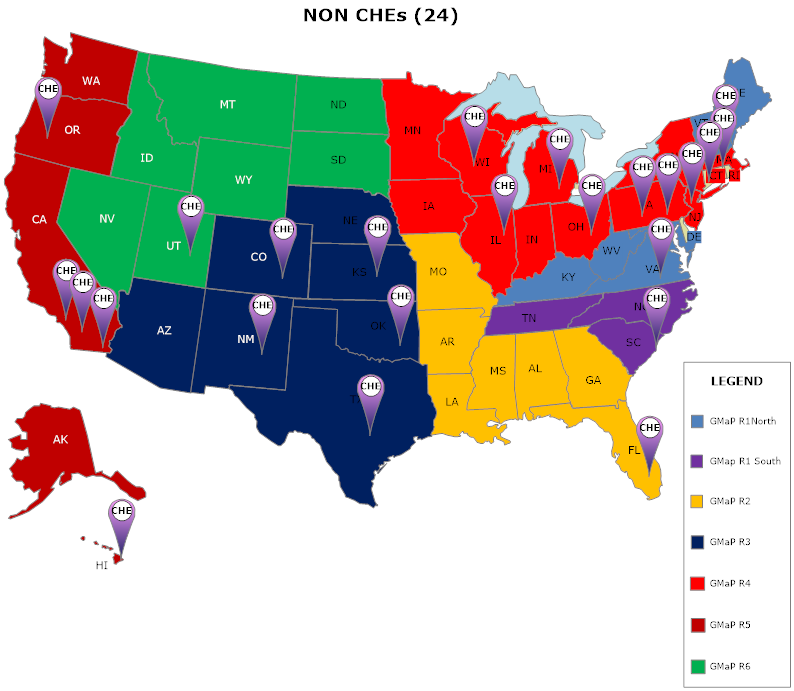Goals
- Enhance NCI’s cancer health disparities research (CHD) research efforts through local and regional culturally-tailored education and outreach within underserved communities.
- Enhance NCI’s ability to disseminate culturally appropriate, evidence-based cancer information to underserved communities.
- Adapt and test culturally tailored education and outreach activities that address local and regional cancer health disparity issues.
Objectives
- Integrate NON CHEs within the research and outreach efforts of the cancer centers and the communities in their catchment areas.
- Plan, conduct, and assess CHE-facilitated community education and outreach, aligned with NCI and cancer center research and outreach priorities, within underserved communities.
- Strengthen partnerships and collaborations with key NCI-sponsored academic, research, community, and regional partners to enhance NCI’s ability to effectively reach underserved communities with tailored cancer information and foster community engagement in research.
NCI Programs Participating in NON
NCI programs participating in NON include NCI-designated Cancer Centers, Partnerships to Advance Cancer Health Equity (PACHE), and other NCI national programs.
Community Health Educators (CHE)
CHEs are individuals experienced in communications, comprehensive cancer control, training, program planning, and evaluation. They are embedded into NON’s 38 participating NCI-Designated Cancer Centers around the U.S.
CHE Scope of Activities
CHEs will work with NCI-Designated Cancer Center staff, the community, GMaP hub, and NCI program staff to conduct the following activities.
Local Education and Outreach
- Identify gaps and barriers to the integration of community education and outreach within the cancer center and propose strategies to resolve them.
- Identify specific ways that CHE-facilitated community education and outreach can enhance the research and outreach efforts of the cancer center grant.
- Adapt and implement CHE-facilitated education and outreach strategies, aligned with the cancer center focus, and linked by NCI priorities and GMaP regional disparity issues.
- Identify CHE-facilitated education and outreach resources and strategies for further testing, as appropriate.
Community
- Develop and maintain academic and community partnerships to enable access to and delivery of culturally appropriate, evidence-based cancer information and education to underserved communities locally and regionally.
- Collaborate with academic, research, community, and regional NCI partners to develop, implement and assess disparities-focused education and outreach efforts linked to local, regional, and NCI research priorities.NCI/GMaP Priorities.
NCI/GMaP Priorities
- Increase awareness and adoption of NCI recommendations on cancer prevention, early detection, and treatment through regional dissemination of information and education materials.
- Advise and assist in message development and content for culturally appropriate study brochures, curricula, and educational materials.
- Disseminate relevant NCI messages, materials, programs, and research opportunities.
- Assist with education and outreach activities, aligned with NCI priorities and regional issues, and conduct in collaboration with NIH/NCI-supported research partners, and academic, regional and community partners, and other NCI programs in order to increase awareness, knowledge and positive behavior among underserved communities in prevention, early detection, and treatment of cancer; to enhance access to cancer care services; and to promote clinical trials and/or biospecimen research participation.
Currently Funded NON CHE Sites

NCI-Designated Cancer Center-Supported NON CHEs by GMaP Region
Cancer Initiatives: Screen to Save (Colorectal cancer), HPV (Cervical Cancer), and Clinical Trial recruitment (all cancers)
| Institution & Location | CHE(s) | Population Served | Initiatives |
|---|---|---|---|
| Virginia Commonwealth University, Massey Cancer Center Richmond, VA |
|
|
|
| Dartmouth College, Norris Cotton Cancer Center Lebanon, NH |
|
|
| Institution & Location | CHE(s) | Population Served | Initiatives |
|---|---|---|---|
| Medical University of South Carolina, Hollings Cancer Center Charleston, SC |
|
|
| Institution & Location | CHE(s) | Population Served | Initiatives |
|---|---|---|---|
| Moffitt Cancer Center and Research Institute Tampa, FL |
|
|
| Institution & Location | CHE(s) | Population Served | Initiatives |
|---|---|---|---|
| The University of Kansas Cancer Center Kansas City, KS |
|
|
|
| Stephenson Cancer Center, The University of Oklahoma Health Sciences Center Oklahoma City, OK |
|
|
|
| University of Colorado Cancer Center Aurora, CO |
|
|
|
| University of New Mexico Comprehensive Cancer Center Albuquerque, NM |
|
|
|
| University of Texas MD Anderson Cancer Center Houston, TX |
|
|
| Institution & Location | CHE(s) | Population Served | Initiatives |
|---|---|---|---|
| University of Wisconsin Carbone Cancer Center Madison, WI |
|
|
|
| Barbara Ann Karmanos Cancer Institute Wayne State University Detroit, MI |
|
|
|
| Yale University Cancer Center New Haven, CT>/td> |
|
|
|
| Dana-Farber Cancer Institute, Harvard University Boston, MA |
|
|
|
| Roswell Park Comprehensive Cancer Institute Buffalo, NY |
|
|
|
| Sidney Kimmel Cancer Center, Thomas Jefferson University Philadelphia, PA |
|
|
|
| The University of Chicago Comprehensive Cancer Center Chicago, IL |
|
|
|
| The Ohio State University Comprehensive Cancer Center Columbus, OH |
|
|
|
| Abramson Cancer Center, University of Pennsylvania Philadelphia, PA |
|
|
| Institution & Location | CHE(s) | Population Served | Initiatives |
|---|---|---|---|
| University of Southern California Norris Comprehensive Cancer Center Los Angeles, CA |
|
|
|
| Beckman Research Institute, City of Hope Los Angeles, CA |
|
|
|
| University of California San Francisco Helen Diller Family Comprehensive Cancer Center San Francisco, CA |
|
|
|
| Knight Cancer Institute Oregon Health and Science University Portland, OR |
|
|
|
| University of Hawaii Cancer Center Honolulu, HI |
|
|
| Institution & Location | CHE(s) | Population Served | Initiatives |
|---|---|---|---|
| Huntsman Cancer Institute, University of Utah Salt Lake City, UT |
|
|